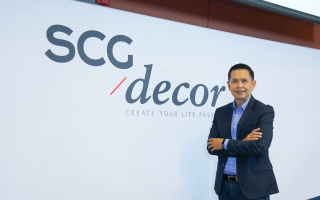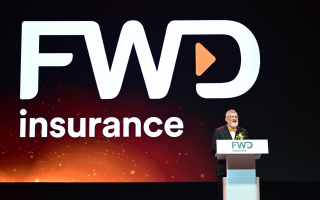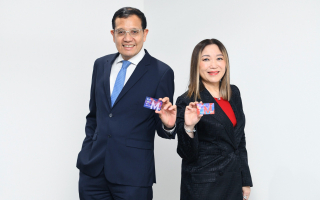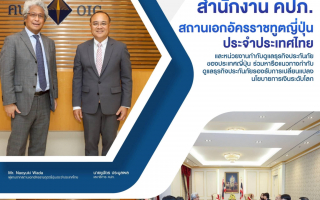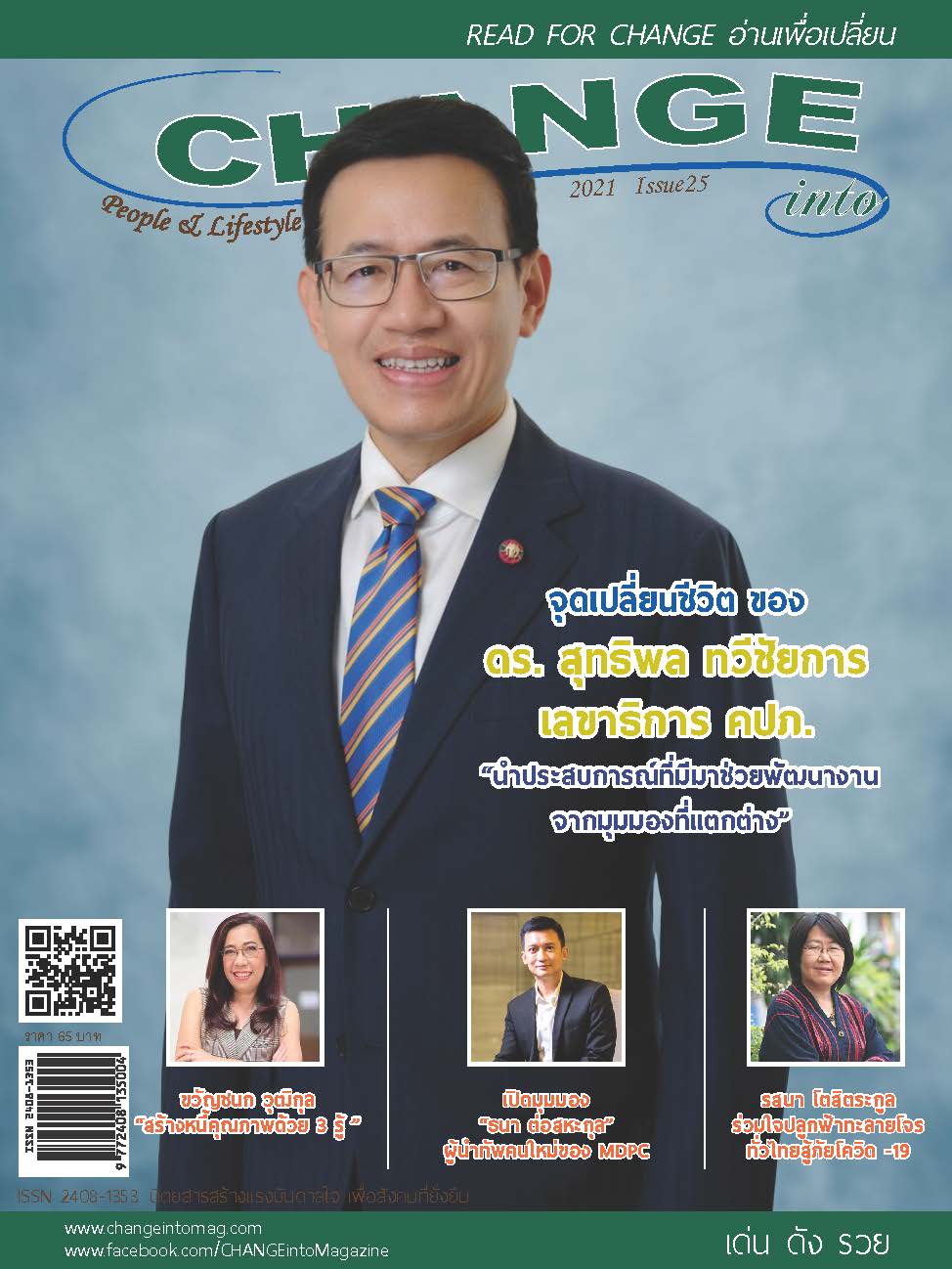ธนาคารกรุงเทพ ชวนผู้บริหารชั้นนำร่วมกระตุ้นผู้ประกอบการไทยลุยเศรษฐกิจสีเขียว-คาร์บอนต่ำ เตือนใครช้าเสี่ยงหลุดเกม
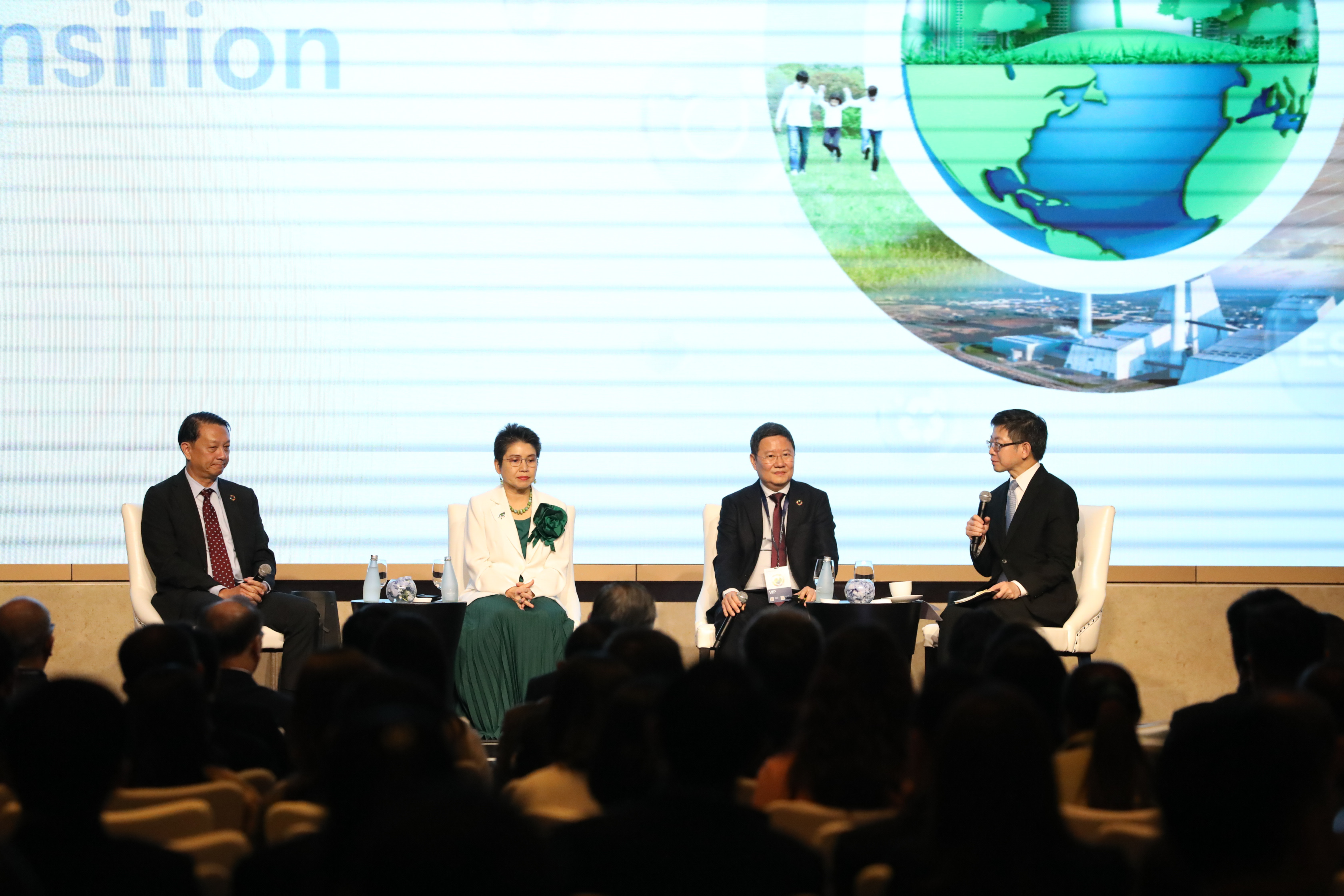
เตือนใครช้าเสี่ยงหลุดเกม แนะเริ่มต้นประเมินตัวเอง-เก็บข้อมูล-ลดใช้พลังงาน
พร้อมขอภาครัฐเพิ่มสิทธิประโยชน์จูงใจ หนุนธุรกิจไทยคว้าโอกาสในตลาดโลกอย่างยั่งยืน
ธนาคารกรุงเทพ ยืนหยัดเป็น “เพื่อนคู่คิด” ดึงผู้บริหารบริษัทชั้นนำร่วมวงสัมมนา แนะผู้ประกอบการทุกกลุ่มตื่นตัวรับมือระเบียบการค้าใหม่ด้านสิ่งแวดล้อมสู่เศรษฐกิจสีเขียว-คาร์บอนต่ำ ประสานเสียงต้องเร่งปรับตัวทันที เพื่อคว้าโอกาสการค้าในตลาดโลก หากปรับไม่ทันอาจกระทบยอดขายได้ แนะเริ่มต้นประเมินตัวเองหา Baseline ใช้แพลตฟอร์มเก็บข้อมูลลดใช้พลังงานสิ้นเปลือง ชี้ช่วยลดต้นทุนค่าไฟไม่ต่ำกว่า 15-20% พร้อมขอภาครัฐหนุนด้านการเงิน เพิ่มสิทธิประโยชน์จูงใจผู้ประกอบการปรับตัวมากขึ้น
นายกอบศักดิ์ ภูตระกูล กรรมการรองผู้จัดการใหญ่ และเลขานุการบริษัท ธนาคารกรุงเทพ จำกัด (มหาชน) เปิดเผยว่า ธนาคารกรุงเทพ ในฐานะ “เพื่อนคู่คิด มิตรคู่บ้าน” ของภาคธุรกิจไทย มีความตั้งใจที่จะพาผู้ประกอบการไทยปรับตัวเพื่อคว้าโอกาสและสร้างการเติบโตให้ธุรกิจอย่างมั่นคงยั่งยืน ผ่านการให้องค์ความรู้ การสร้างเครือข่ายธุรกิจและสินเชื่อมาอย่างต่อเนื่อง โดยล่าสุดได้จัดงานสัมมนา “The Great Green Transition” ที่นำบริษัทชั้นนำของไทยรวมทั้งหน่วยงานภาครัฐ ร่วมแนะนำและค้นหาจุดเปลี่ยน โดยสิ่งสำคัญที่เหล่าองค์กรชั้นนำต่างเห็นในทิศทางเดียวกันคือการหา Baseline ค่าพื้นฐานที่บันทึกการปล่อยก๊าซเรือนกระจกหรือการใช้พลังงานของธุรกิจในช่วงเวลาหนึ่ง ซึ่งเป็นจุดเริ่มต้นของแผนลดการใช้คาร์บอนที่ชัดเจน
ทั้งนี้ ที่ผ่านมาเศรษฐกิจไทยใช้พลังงานเป็นหัวใจสำคัญของการขับเคลื่อนในทุกธุรกิจ สิ่งนี้เป็นปัจจัยสำคัญที่ทำให้โลกร้อนขึ้นเรื่อย ๆ และกลายเป็นประเด็นที่ทั่วโลกต่างให้ความสนใจและมุ่งหาวิธีก้าวสู่ยุคเศรษฐกิจคาร์บอนต่ำ (Low Carbon Economy) ทำให้เกิดกฎระเบียบใหม่ทางการค้าที่เกี่ยวข้องกับสิ่งแวดล้อมมากขึ้น
“ภาคธุรกิจไทยไม่ควรมองว่าเรื่องนี้เป็นเรื่องไกลตัว เพียงเพราะยังไม่อยู่ในกลุ่มสินค้าที่เจอกฎระเบียบเหล่านี้ เพราะในอนาคตเชื่อว่ามาตรการด้านสิ่งแวดล้อมจะครอบคลุมไปยังสินค้าทุกกลุ่ม และไม่ใช่แค่สหภาพยุโรปเท่านั้นที่จะนำหลักเกณฑ์เหล่านี้มาใช้ หลายประเทศก็กำลังเตรียมดำเนินการเช่นเดียวกัน ซึ่งจะทำให้สินค้าทุกอย่างเกิดการตรวจสอบย้อนกลับทั้งห่วงโซ่ แม้จะเป็นฟันเฟืองเล็กๆในอุตสาหกรรมก็จะมีผลกระทบตามมา อาจทำให้สินค้าขายไม่ได้ด้วยเช่นกัน” นายกอบศักดิ์กล่าว
นายทิม แม็คแคฟเฟอร์รี่ Global Investment Director บริษัท ปูนซิเมนต์ไทย จำกัด (มหาชน) หรือ SCG กล่าวว่า SCG ได้ลงทุนในเทคโนโลยีใหม่ที่จะช่วยให้ธุรกิจลดการปล่อยคาร์บอนได้อย่างมีประสิทธิภาพ เช่น เทคโนโลยีแผงโซลาเซลล์ประสิทธิภาพสูง เทคโนโลยีที่ให้พลังงานความร้อนสูงโดยไม่ปล่อยคาร์บอน เทคโนโลยีที่ฟอกคาร์บอนออกจากอากาศ และผลิตภัณฑ์ที่สามารถเพิ่มประสิทธิภาพในระบบห่วงโซ่การขนส่งความเย็น โดยตั้งเป้าหมายลดการปล่อยคาร์บอนให้ได้มากถึง 25% ภายในปี 2030 รวมทั้งผลิตซีเมนต์ที่มีคาร์บอนฟุตพริ้นท์น้อยลงโดยมุ่งมั่นที่จะเป็นส่วนหนึ่งในการสร้างอนาคตที่ยั่งยืนสำหรับประเทศไทย
“สิ่งที่ง่ายที่สุดของธุรกิจควรเริ่มจากประเมินการใช้พลังงานและสาธารณูปโภคภายในธุรกิจเอง และมองหาโอกาสในการลดการใช้พลังงานลง พิจารณาการใช้พลังงานหมุนเวียน ปรับปรุงกระบวนการผลิต และนำเทคโนโลยีมาใช้ ซึ่งผลที่จะเกิดต่อธุรกิจอย่างเป็นรูปธรรมมากที่สุดในทันที ก็คือการช่วยลดภาระค่าไฟฟ้าให้ได้ไม่น้อยกว่า 15-20% สิ่งนี้จะช่วยให้ธุรกิจลดต้นทุนไปได้มาก และสร้างจุดเริ่มต้นการเปลี่ยนผ่านสู่เศรษฐกิจสีเขียวในขั้นแรก เพิ่มขีดความสามารถแข่งขันระยะยาวให้แก่ภาคธุรกิจได้อย่างแน่นอน” นายทิมกล่าว
นายพีรพงศ์ กรินชัย ผู้บริหารสูงสุดสายงานวิศวกรรมกลาง บริษัท เจริญโภคภัณฑ์อาหาร จำกัด (มหาชน) กล่าวว่า บริษัทขนาดใหญ่ที่มีการขายสินค้าไปทั่วโลก เผชิญกับตัวเร่งในการก้าวเข้าสู่ธุรกิจคาร์บอนต่ำจากความต้องการของลูกค้าในต่างประเทศและข้อกีดกันทางการค้า (trade barrier)ระบบใหม่ ทำให้บริษัทขนาดใหญ่มีความมุ่งมั่นสู่ธุรกิจคาร์บอนต่ำให้ตรงกับมาตรฐาน ไม่ว่าจะเป็น CBAM และ EUDR เพื่อให้สามารถแข่งขันได้ แม้ธุรกิจขนาดเล็กอาจยังไม่ได้มองภาพด้านนี้มากนักและอาจมองเป็นเรื่องไกลตัว แต่การจัดงานเสวนานี้ ที่ธนาคารได้ดึงธุรกิจทั้งขนาดใหญ่และขนาดเล็กเข้ามาร่วมงาน ทำให้ตระหนักถึงภาวะโลกร้อนและตระหนักถึงความเปลี่ยนแปลงที่กำลังเกิดขึ้น ซึ่งจะเป็นกฎกติกาใหม่ในโลกที่จะช่วยให้ SME ก้าวเข้าสู่การเปลี่ยนแปลงและก้าวเข้าสู่สังคมคาร์บอนต่ำได้ ทำให้ทั้งภาคธุรกิจและภาคเกษตรอุตสาหกรรมในประเทศไทยยืนหยัดต่อได้ในอนาคต
ด้านนายมงคล ตั้งศิริวิช ประธานบริษัท ดูแลประเทศไทย ลาว และเมียนมาบริษัท ชไนเดอร์ (ไทยแลนด์) จำกัด ซึ่งเป็นองค์กรชั้นนำด้านความยั่งยืนระดับโลก กล่าวว่า ประสบการณ์ในการเปลี่ยนผ่านองค์กรพบว่ามีอยู่ 3 เรื่องหลักที่จะนำไปสู่การเปลี่ยนผ่านอย่างยั่งยืนได้ คือ
- Strategize: สร้าง Baseline และเส้นทางสู่การเปลี่ยนผ่านอย่างยั่งยืน (Decabonization Roadmap)
- Digitize: นำเสนอเทคโนโลยีดิจิทัลที่ใช้ในการตรวจวัดค่าการใช้พลังงาน การปล่อยก๊าซคาร์บอน มาใช้เพื่อเก็บข้อมูลมาวิเคราะห์หาโอกาสลดการใช้พลังงานลง
- Decarbonize: หาโซลูชันเพื่อลดคาร์บอน เช่น การใช้พลังงานสีเขียวมาทดแทน และปรับปรุงกระบวนการทำงานเพื่อให้ใช้พลังงานอย่างมีประสิทธิภาพ
ทั้งนี้มองว่า การเก็บข้อมูล คือหัวใจสำคัญของการวางแผนลดการปล่อยคาร์บอน ซึ่งต้องเลือกใช้เทคโนโลยีให้เหมาะสมกับธุรกิจ โดยไม่จำเป็นต้องลงทุนสูงหรือปรับเปลี่ยนใหม่ทั้งหมด ซึ่งการลงทุนเหล่านี้ไม่ใช่ต้นทุนสูญเปล่า แต่จะช่วยต่อยอดความสามารถในการแข่งขัน เพราะการเปลี่ยนไปสู่ธุรกิจสีเขียวไม่ใช่เรื่องระยะยาวแต่เป็นเรื่องสำคัญที่จะต้องเริ่มทำทันทีเพื่อให้ทันต่อการเปลี่ยนแปลงของโลกที่เกิดขึ้นแล้ว
ขณะที่ นางกลอยตา ณ ถลาง รองกรรมการผู้จัดการใหญ่ งานบริหารความยั่งยืนและสื่อสารองค์กร บริษัท บางจาก คอร์ปอเรชั่น จำกัด (มหาชน) กล่าวว่า โจทย์ท้าทายที่สุดในการปรับเปลี่ยนไปสู่ธุรกิจคาร์บอนต่ำ คือ การปรับเปลี่ยนทุกห่วงโซ่ของธุรกิจให้ก้าวสู่ธุรกิจสีเขียวไปด้วยกัน โดยเฉพาะกลุ่ม Scope 3 หรือ การปล่อยก๊าซเรือนกระจกทางอ้อมที่อยู่เหนือการควบคุม (Indirect Value Chain Emissions) โดยองค์กรภายนอกใน ซัพพลายเชน ซึ่งคิดเป็นกว่า 90% ของธุรกิจ ที่ยังตระหนักถึงความสำคัญในเรื่องนี้ค่อนข้างน้อย จึงเป็นหน้าที่ของบริษัทขนาดใหญ่และหน่วยงานทุกภาคส่วนในการผลักดันและสนับสนุนในการเปลี่ยนผ่านครั้งสำคัญนี้
“ปฏิเสธไม่ได้ว่าทุกการเปลี่ยนแปลงย่อมตามมาด้วยต้นทุนที่สูงขึ้น ดังนั้น สิ่งที่ผู้ประกอบการต้องการขณะนี้ จึงเป็นการเข้าถึงแหล่งเงินทุนทั้งจากภาครัฐและเอกชน หรือการให้สิทธิประโยชน์จูงใจในการปรับเปลี่ยน แต่สิ่งที่คนทั่วไปอาจจะยังไม่รู้คือ เรามีพี่เลี้ยงรออยู่เยอะมากที่พร้อมจะเข้ามาช่วยเหลือธุรกิจขนาดเล็ก เช่น บริษัทขนาดใหญ่ในอุตสาหกรรม หน่วยงานภาครัฐ สถาบันการศึกษา ที่อยากร่วมทำวิจัยเพื่อนำไปสู่เป้าหมายการลดคาร์บอน รวมทั้งการสนับสนุนด้านการเงินมากมายจากสถาบันการเงินอย่างธนาคารกรุงเทพ ซึ่งเป็นสถาบันการเงินที่แข็งแรงก็พร้อมจะช่วยทุกธุรกิจให้สามารถผลิกทุกความเสี่ยงให้เป็นโอกาสไปด้วยกัน” นางกลอยตากล่าวทิ้งท้าย
Bangkok Bank invites top executives to push Thai entrepreneurs towards a green and low-carbon economy, warning that those who delay risk falling behind. The Bank advises starting with self-assessment, data collection, and energy reduction, while urging the government to enhance incentives to support Thai businesses in seizing sustainable opportunities in the global market
Bangkok Bank, as a "trusted partner", invited top executives to join seminars to encourage entrepreneurs across all sectors to prepare for new environmental trade regulations while moving towards a green and low-carbon economy. All speakers agreed that businesses should adapt swiftly in order to seize global trade opportunities as failing to adapt could impact their sales. The Bank advised starting with self-assessment to establish a baseline, using data collection platforms, and reducing energy waste. The Bank said such measures could lower electricity costs by 15-20% and it called on the government to provide financial support and enhanced incentives to encourage businesses to adapt more effectively.
Bangkok Bank Director and Senior Executive Vice President and Corporate Secretary Kobsak Pootrakool said that Bangkok Bank, as a “trusted partner and reliable close friend” is committed to helping Thai entrepreneurs seize opportunities and achieve sustainable business growth by sharing knowledge, building business networks, and providing financial support. Recently, the Bank hosted “The Great Green Transition” seminar to bring together speakers from leading Thai companies and government agencies to offer insights and identify pivotal changes. A shared focus among leading organizations is establishing a baseline—recording the levels of greenhouse gas emissions or energy use over a specific period. This baseline serves as a starting point for clear and actionable plans to reduce carbon usage effectively.
In the past, the Thai economy has used energy as a key business driver, but this has contributed to global warming. However, now the world is trying to find ways to move towards a low-carbon economy and new trade regulations are being introduced to help make this happen.
“Thai businesses should not see the EU’s new CBAM carbon regulations as a far-off issue just because they do not yet produce the products that are subject to them, as in the future, the environmental measures will cover all product groups. Furthermore, it will not only be the European Union that applies these rules as many countries are also preparing to adopt them, which will make all products traceable throughout the entire chain. Even if a business is a small cog in the industry, failing to meet these standards, may make their products unsellable,” said Mr. Kobsak.
Mr. Tim McCaffery, Global Investment Director Siam Cement Public Company Limited or SCG said SCG has invested in new technologies that will help businesses effectively reduce carbon emissions, such as high-efficiency solar panel technology, technology that provides high thermal energy without carbon emissions, technologies that remove carbon from the air and products that can increase efficiency in the cold transport supply chain system. The company aims to reduce carbon emissions by up to 25% by 2030 and produce cement with a lower carbon footprint, with the aim of contributing to a sustainable future for Thailand.
“The easiest first step is to assess energy and utility usage within a business and look for ways to reduce energy consumption while considering using renewable energy, improving production processes and adopting technology. The most immediate and tangible benefit for businesses would be the reduction of electricity costs by at least 15-20% as this can greatly cut the cost of doing business and begin the green economy transition journey. This will definitely increase competitiveness for businesses in the long term,” said Mr. Tim
Executive Vice President - Corporate Engineering Charoen Pokphand Foods Mr. Peerapong Krinchai said that large companies selling products worldwide face pressure to move towards a low-carbon business due to international consumer demands and new trade barriers. This is driving large companies to commit to low-caron paths to meet standards such as CBAM and EUDR to remain competitive. Although small businesses may not yet see this as relevant, the seminar organized by the Bank brought together large and small businesses to raise awareness about global warming and ongoing changes. This will help SME transition to a low-carbon society and ensure the sustainability of both the business and agro-industry sectors in Thailand.
Mr. Mongkhon Tangsiriwit - Cluster president in charge of Thailand, Laos and Myanmar for Schneider Electric, a leading global organization in sustainability, shared his experience in organizational transformation and highlighted three main areas for sustainability transition:
- Strategize: Create a baseline and a decarbonization roadmap.
- Digitize: Adopt digital technologies to measure energy consumption and carbon emissions and analyze data to find ways to reduce energy consumption.
- Decarbonize: Find solutions to reduce carbon emissions such as using green energy and improving work processes to use energy efficiently.
Data collection is the key to effective carbon reduction planning. It's essential to choose technology that is suitable for the business, without necessarily requiring high investment or a complete overhaul. These investments are not wasted costs but will enhance competitiveness. Transitioning to a green business is
not a long-term issue but an urgent matter that must be addressed immediately to keep pace with the global changes already underway.
Ms. Gloyta Nathalang, Senior Executive Vice President of Sustainability Management and Corporate Communications at Bangchak Corporation, stated that the most challenging aspect in transitioning to a low-carbon business is transforming the entire business chain into a green business. This is especially true for Scope 3, or indirect value chain emissions, which are beyond direct control and account for over 90% of a business. Awareness of this issue is still quite low among external organizations in the supply chain, therefore, large corporations and all sectors must take the lead in driving and supporting this significant transition.
“Undeniably, every change comes with increased costs. Therefore, what entrepreneurs need now is access to funding sources from both the public and private sectors, as well as incentives to support the transition. What the general public may not realize is that there are many mentors ready to help small businesses, such as large companies in the industry, government agencies, and academic institutions, that are willing to collaborate on research toward carbon reduction goals. Additionally, Bangkok Bank, which is a strong financial institution, and other financial institutions, are ready to support businesses to turn every risk into an opportunity,” Ms. Gloyta concluded.



